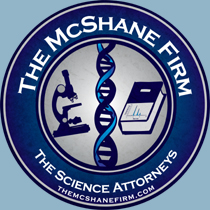Perhaps nothing irks me more than reading about dry-labbing. In case you have never heard of it dry-labbing is a phenomenon whereby the laboratory analyst reports out a result but actually did no testing whatsoever. Dry-labbing in a crime laboratory is particularly dangerous given that crime laboratories are notoriously opaque and absolutely not transparent. Data […]

Born on Date– Not Just for Beer But Gas Cylinders Too
Beer Born On Date Everyone wants to eat fresh food as opposed to stale food. No one wants to drink skunked beer. So, we have born-on dates on certain foods and foodstuff. This allows us to judge whether or not we want to accept it and drink/eat it. Carrier gas purity is a big issue […]

Help wanted: External Quality Assurance Officer for Forensic Laboratories
On occasion I attend various scientific short courses such as the ones put on by the American Chemical Society, the National Fire Protection Association, The Chromatography Forum of Delaware Valley or various manufacturers such as Restek, Agilent and the like. I highly commend any lawyer to go to these conferences and seminars. In my opinion it […]

The Problem of Modern Forensic Science: Novices can become experts at the push of a button
I have lamented before about the horrible state of affairs that has developed in modern forensic science and in particular instrumentation. As an industry, the machine manufacturers seek to automate and make these processes so simple that they no longer require true understanding of the underlying science or the process that makes the machine do […]

The Houston Crime Laboratory: A continuing model of what is wrong?
It’s been long known that the Houston Crime Laboratory has struggled for a long time. According to www.hpdlabinvestigation.org the relevant historical context can be summed up as follows: The public crisis that eventually led to the hiring of an independent investigator to review the Crime Lab’s operations began on November 11, 2002, with the first in […]

Why don’t crime laboratories lose their accreditation more often?
As we have reported here before, state crime laboratories almost never lose their accreditation even when horrible issues of quality control emerge and massive failures of quality assurance are exposed. There is of course one notable exceptions to this proclamation: State Forensic Lab Loses Accreditation Malloy Official Says Concerns Being Addressed Here is the normal […]

Standards, Controls, Calibrators, and Verifiers, Oh my…
Lions and Tigers and Bears… Verifiers, Calibrators and Controls… Oh my! Sometimes a criminal defense attorney can at times feel like Dorothy in the Wizard of Oz in that we are transported from the relative safety of home (the courtroom) to the weird world of Oz (the laboratory). There are unusual and often times conflicting […]

Why single column Gas Chromatography-Flame Ionization Detector analysis is not forensically or scientifically acceptable
There is a large difference between a single column analysis and a dual column analysis when it comes to the ability to most correctly identify and quantitate an unknown in the scientific world. In forensic science, we are constantly testing unknowns. What is meant by this is that we have a sample that is seized […]

Police Science: Re-purposing of Capilliary Columns for Drugs of Abuse testing
As I have written before a lot of forensic science is really legitimate analytical chemistry that is re-purposed for the courtroom, but without proper scientific method validation before deploying it into this new purpose. This re-purposing of legitimate techniques and employing them without examining the true validity of doing so is not scientific. I call […]

A Gas Chromatoagraph or Liquid Chromatograph is not like a calculator
I am fond of pointing out that a Gas Chromatograph (GC) and a Liquid Chromatograph (LC) are not like a simple calculator where anyone walking up to a calculator regardless if it is a 2 year old or a PhD in mathematics who keys in 2+2, the result will always be 4, it requires interpretation […]

Method Validation for Lawyers Part 6: What is quality assurance and quality control?
In a series of posts, we are going to talk about method validation. Part 1: Introduction-Is it valid, invalid or non-validated? Part 2: What is method validation? Part 3: Can we use someone else’s validated method? Part 4: What triggers verification, re-validation or out right new validation of a method? Part 5: What are the […]


